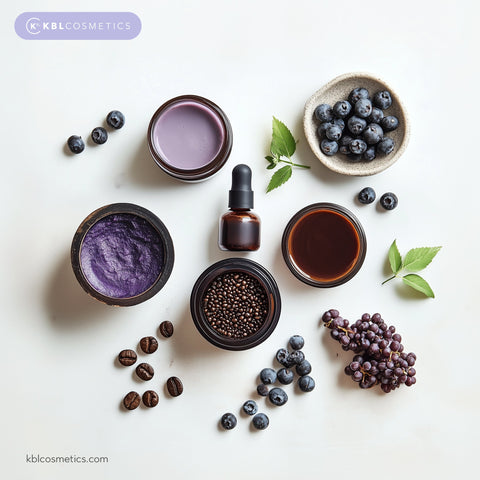Functional ingredients in cosmetic formulations include a wide range of active ingredient classes such as fatty acids, hyaluronic acid, salicylic acid, glycolic acid, citric acid, amino acid, bioactive peptides, vitamin c, vitamin e and natural emollients. These active substances deliver specific skin benefits like skin hydration, improved skin elasticity, reduction of dead skin cells, brightening of dark spots and wound healing.
Antioxidant properties and antimicrobial activity
Ingredients in cosmetics often include antioxidants like vitamin c and vitamin e as well as synthetic preservatives or natural preservatives to prolong shelf life. Antioxidant activity helps protect formulas from free radical damage while antimicrobial properties prevent microbial growth from a broad range of microorganisms, complying with regulatory standards and ensuring consumer safety.
Roles of acids and peptides in skincare formulations
Alpha hydroxy acid ingredients for cosmetics such as glycolic acid and citric acid help exfoliate dead skin cells. Salicylic acid serves oily skin and skin concerns like acne. Palmitoyl peptides and bioactive peptides support anti-aging products by promoting skin elasticity. These active substances enhance skin benefits and address consumer demands for anti-aging cosmetics and skincare products.
Natural and synthetic ingredient balance
Many cosmetic products combine natural ingredients, plant-based extracts and botanical extracts with synthetic ingredients to meet a variety of consumer preferences. Coconut oil, organic ingredients, and biodegradable ingredients are widely used as effective emollients in hair care products, body washes, and body oils. This ingredient diversity aligns with consumer awareness of skin health and the growing interest in personalized skincare solutions.
Product stability in cosmetic formulations
To ensure product stability and extend shelf life, cosmetic formulations include ingredients that improve skin permeation, prevent rancidity, and protect against microbial contamination. Natural preservatives and antioxidants help maintain sensory properties and effectiveness in a wide range of personal care products, including skin care and hair care.
Future directions in functional cosmetics
The future of functional cosmetics focuses on skincare formulations with active ingredients tailored to address specific skin concerns. Trends include the use of multi-sterol extract, bioactive substances, natural preservatives, and agents for hair care with antimicrobial activity. With increasing awareness of human health and demand for beautiful skin, innovative formulations are essential to meet both regulatory framework and consumer expectations.
Please contact us to get started.
